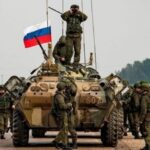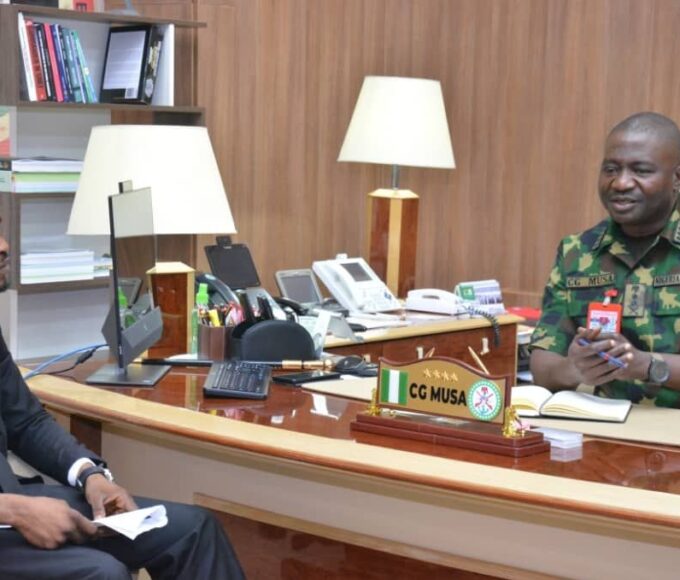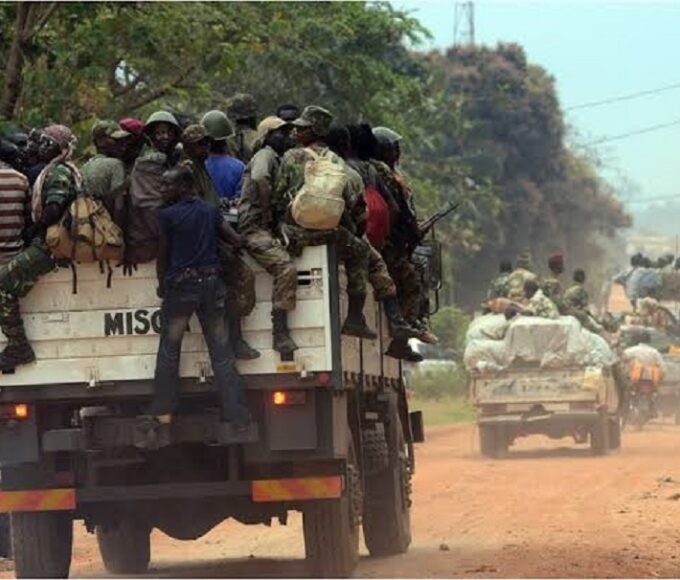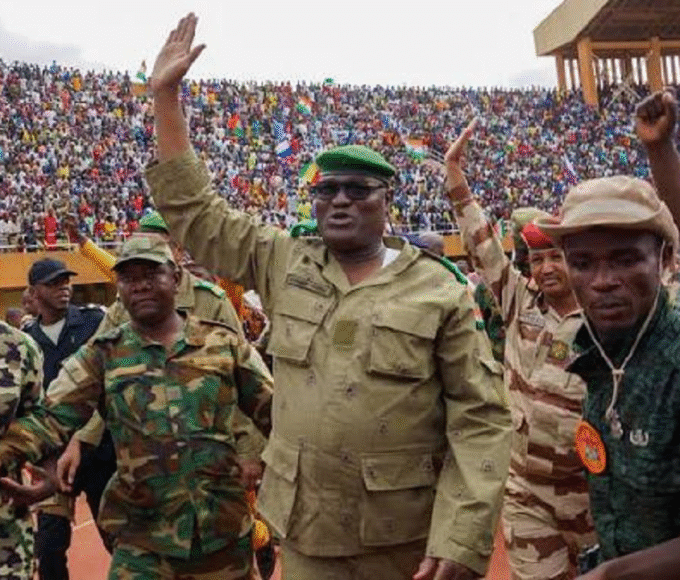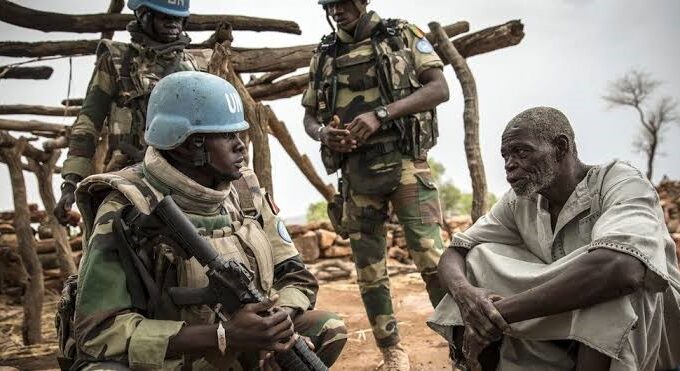The General Who Reimagined America’s Role in Africa: Gen. Kip Ward and the Quiet Revolution in African Security
Lt. General William E. “Kip” Ward didn’t just lead soldiers. He led a vision—one in which Africa’s peace was not imposed, but empowered.

By the time Lt. General William E. “Kip” Ward hung up his uniform in 2012, he had already redrawn the contours of America’s military and diplomatic strategy on the African continent. For many, he was not merely a general—he was a strategist, a diplomat in fatigues, and above all, the architect of a bold, unprecedented experiment in collaborative security: AFRICOM—the United States Africa Command.
Born in Baltimore, Maryland, in 1949, Ward’s journey to global military leadership began modestly. After commissioning through the ROTC programme at Morgan State University in 1971, he rose steadily through the ranks of the U.S. Army. His early service in the 82nd Airborne Division and the 2nd Infantry Division in Korea revealed a soldier with an acute grasp of terrain and temperament. Yet it was not until Operation Restore Hope in Somalia—where he commanded the 2nd Brigade, 10th Mountain Division—that Ward’s aptitude for navigating complex African theatres truly emerged.
But Somalia was only the prelude to a larger mission—one that would make him one of the most consequential American military leaders in Africa’s post-colonial history.
Reimagining Security Engagement: The Birth of AFRICOM
In 2007, amid mounting global security challenges and the growing strategic significance of Africa, President George W. Bush appointed Ward as the first commander of AFRICOM. Headquartered in Stuttgart, Germany, the new command sought to consolidate America’s fragmented military footprint on the continent, previously overseen by three separate commands.
What Ward delivered, however, went far beyond bureaucratic efficiency—it was a paradigm shift.
He envisioned AFRICOM not as an instrument of military dominance, but as a platform for partnership. “We’re not here to impose solutions,” Ward often stated. “We’re here to work with our African partners to support their own goals for peace and stability.” With this ethos, he distanced AFRICOM from the interventionist postures commonly associated with other U.S. commands.
Under his leadership, AFRICOM emphasised capacity-building, respect for sovereignty, and long-term development. Ward prioritised initiatives such as non-commissioned officer (NCO) development programmes, military intelligence training, and maritime security enhancement—all designed to strengthen indigenous security institutions rather than displace them.
The Philosophy Behind the Command
Ward’s AFRICOM was anchored in a philosophy rarely embraced in military strategy: that security could not be disentangled from development, governance, and human rights. For him, securing Africa wasn’t solely about countering extremism or piracy—it was also about economic empowerment, education, and the entrenchment of democratic institutions.
“The health of Africa’s security infrastructure is tied to the health of its governments and economies,” he once remarked. This broad vision was informed by his academic foundation—he held a Master’s degree in Political Science from Penn State and taught international relations at West Point.
To make AFRICOM resonate with often sceptical African leaders, Ward focused on maritime domain awareness, humanitarian demining, disaster preparedness, and peacekeeping logistics. His goal was clear: AFRICOM must meet Africa’s actual needs, not merely serve America’s strategic interests.
He built trust not just with generals, but with presidents, cabinet ministers, traditional leaders, and civil society actors. He listened—and Africa took notice.
Building Bridges with the African Union
Ward’s diplomatic acumen was perhaps most visible in AFRICOM’s relationship with the African Union. He championed efforts to support the AU’s Peace and Security Council and maintained regular engagement with its leadership to ensure alignment between AFRICOM’s programmes and the AU’s strategic goals.
In regions like the Sahel, the Great Lakes, and the Horn of Africa, Ward championed internal capacity-building over external intervention. He resisted calls for direct U.S. military deployments unless absolutely necessary, instead focusing on empowering local actors to take charge of their own security environments.
His approach was not only strategic but deeply respectful—positioning the United States as a collaborative partner, not a post-colonial overlord.
The Security Legacy in African Capitals
Ward’s influence is subtly etched into defence institutions across Africa. In Nigeria, Ghana, Kenya, Senegal, and South Africa, one finds NCO academies, counterterrorism units, and disaster response teams shaped or reinforced under Ward’s leadership.
In nations along the Gulf of Guinea—once plagued by maritime piracy—coordinated patrols and regional cooperation have improved significantly, thanks to Ward’s insistence on domain awareness and interagency coordination.
Even in conflict-prone, landlocked states, AFRICOM under Ward introduced intelligence-sharing frameworks and tactical training that enabled governments to reclaim control of their territories.
No single individual can solve Africa’s multifaceted security challenges. Yet under Ward, AFRICOM gave the continent a fighting chance to stand tall.

After the Uniform: A Continuing Voice for Africa
Following his retirement, Ward did not fade from view. He became a sought-after speaker and advisor on global security, particularly African affairs. As President and COO of SENTEL Corporation, and later in roles at institutions such as the Africa Center for Strategic Studies, he continued to advocate for African agency in shaping its security narrative.
Ward promoted a new model of cooperation—one where Africa is not just a theatre of operations but a co-author of its own security architecture. His ideas remain influential in U.S. strategic circles, especially as African security dynamics grow more complex amid rising jihadism, climate insecurity, and the return of great power competition.
The model of “security through collaboration” that Ward advanced has quietly endured. Even as new leaders rotate through AFRICOM, the principles he instilled—sovereignty, partnership, and capacity—have become part of the command’s institutional memory.
The Controversies—and the Enduring Respect
Ward’s career was not without controversy. In 2012, following a Department of Defense investigation into the misuse of travel funds, he was demoted from four-star to three-star general. Yet even amid this administrative censure, his legacy on the continent remained intact.
In African capitals, Ward is remembered not for headlines, but for the trust he earned and the institutions he helped build. In a world where American military power often signals intervention, Ward offered a different kind of legacy: goodwill.
A Strategic Footprint, Light and Lasting
Africa’s security future stands at a critical juncture. From the insurgencies in the Sahel to maritime threats, cyber insecurity, and climate-induced conflict, the challenges are layered and urgent.
In this climate, the foundations laid by General Kip Ward have only become more relevant. As the U.S. recalibrates its role amid Chinese and Russian advances on the continent, Ward’s roadmap remains potent—not one of confrontation, but of cooperation.
AFRICOM’s ongoing efforts in health security, logistics, peacekeeping, and leadership training are testaments to the enduring philosophy of a general who saw more than threats—he saw partnerships, dignity, and the promise of shared futures.
In an age of widening geopolitical divides, General Ward’s legacy stands as a quiet but powerful reminder: the most lasting victories in security are not forged through firepower—but through respect, patience, and partnership.
Lt. General William E. “Kip” Ward didn’t just lead soldiers. He led a vision—one in which Africa’s peace was not imposed, but empowered.
Recent Posts
Categories
- Air & Aerospace17
- Border Security15
- Civil Security6
- Civil Wars4
- Crisis5
- Cyber Security8
- Defense24
- Diplomacy19
- Entrepreneurship1
- Events5
- Global Security Watch6
- Industry8
- Land & Army9
- Leadership & Training5
- Military Aviation7
- Military History27
- Military Speeches1
- More1
- Naval & Maritime9
- Policies1
- Resources2
- Security12
- Special Forces2
- Systems And Technology9
- Tech6
- Uncategorized6
- UNSC1
- Veterans7
- Women in Defence9
Related Articles
Why General C.G. Musa Is the Right Defence Minister for Nigeria—Right Now
President Bola Tinubu’s nomination of General Christopher Gwabin Musa (rtd.) as Minister...
ByKing Richard Igimoh, Group Editor ALODecember 2, 2025DIPLOMACY, PEACE & CIVIL SECURITY – CROSS-BORDER PEACE PACTS IN EAST AFRICA: SUCCESS OR FAILURE?
From the windswept Karamoja hills to the fishing villages of Lake Victoria,...
ByKing Richard Igimoh, Group Editor ALONovember 24, 2025ECOWAS MILITARY INTERVENTION IN NIGER: A TURNING POINT?
The coup d’état in Niger on July 26, 2023, marked a seismic...
ByKing Richard Igimoh, Group Editor ALOOctober 7, 2025CIVIL-MILITARY RELATIONS IN FRAGILE STATES
Fragile states marked by weak governance, economic instability, and persistent unrest face...
ByKing Richard Igimoh, Group Editor ALOSeptember 17, 2025





